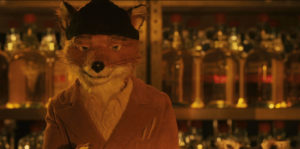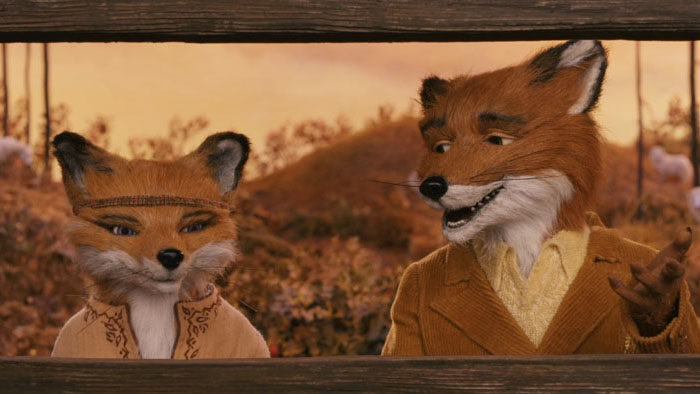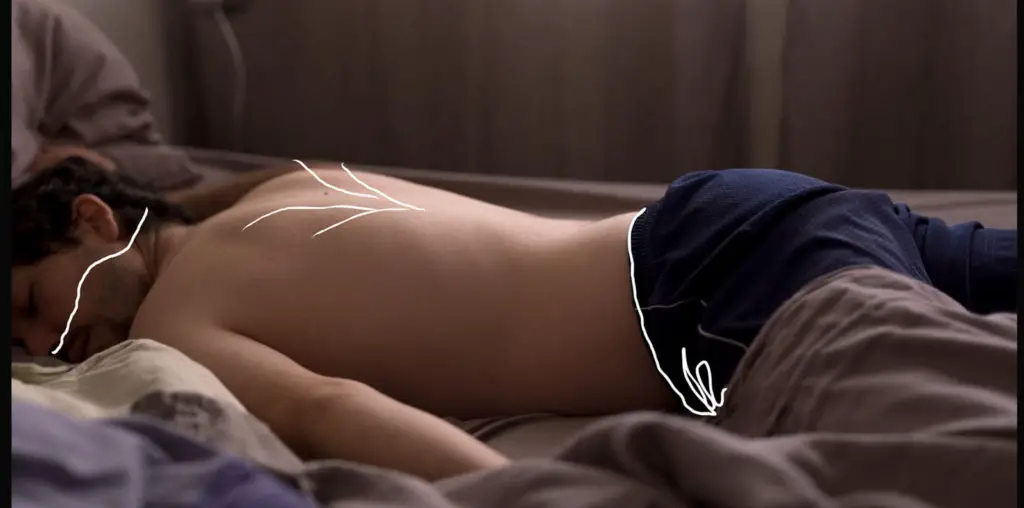
Right from the get-go, in a flashback prologue depicting Mr. and Mrs. Fox (the latter figure voiced by Meryl Streep), Clooney lends the character a confident air. Mr. Fox’s rapid-fire delivery of every word he utters suggests a critter always scheming up ten escape plans before he’s walked through the door. Magnetic assuredness informs Clooney’s vocals, getting you immediately invested in Mr. Fox. Later, when Anderson’s script flashes forward in time, we see Mr. Fox living out a quiet domestic life with Mrs. Fox and troubled offspring Ash (Jason Schwartzman). Clooney’s delivery of lines like “I don’t want to live in a hole anymore” ring with quiet but pained frustration. The weight of his finite existence weighs on him even at the breakfast table.
Mr. Fox is a stop-motion animal animated in a ragged fashion, harkening back to Rankin-Bass TV specials. He’s not supposed to “look realistic.” Yet Clooney’s vocals imbue this creature with such tangible humanity. He heartbreakingly expresses the sort of insecurity and existentialism we all deal with. That, above all else, is why Clooney fits right into Anderson’s aesthetic. It’s not just his way of delivering dry comedic dialogue. Anderson’s movies have eccentric surfaces masking raw emotions. Rushmore, The Grand Budapest Hotel, Asteroid City, The Royal Tenenbaums, they’re all projects with melancholy cores.

“Clooney embraces Anderson’s style of comedy and voice acting as if he’s inhabited them all his life.”
Think of the quiet bedtime conversations about crumbling marriages in Moonrise Kingdom. Ditto the devastating “I’ve had a rough year, dad” line from Royal Tenenbaums. Aching vulnerability informs these works. Such emotions resonate all the more thanks to Anderson’s trademark heightened backdrops and costumes. Life often jostles us from laughs to tears in the blink of an eye. Anderson’s features melding bittersweet emotions with brightly colored dollhouse production designs beautifully capture this. Clooney’s Mr. Fox vocal turn effortlessly and instantly encapsulates this phenomenon. This Michael Clayton leading man can execute Mr. Fox’s feral eating sounds and pain-ridden line deliveries with equal levels of conviction.
Clooney’s Mr. Fox benefits mightily from Fantastic Mr. Fox‘s unique process of capturing people’s vocal performances. Many of these actors actually had their voices recorded while acting out their scenes with other performers. There’s real energy going on when they’re running, while realistic flourishes emerge in interactions with other performers. No wonder Clooney feels so in his element at Mr. Fox. Anderson’s process for capturing voice work brought the world of voice acting directly to Clooney’s typical style of acting.
This element gives Clooney’s Mr. Fox another unique trait compared to other Clooney performances: the actors he’s bouncing off with. We have tons of movies where Clooney rubs shoulders with Julia Roberts, Brad Pitt, and Tilda Swinton. How many features allow Clooney to bounce off Wallace Wolodarsky, who here portrays the nervous possum Kylie? Scenes involving Mr. Fox and Kylie rubbing shoulders are some of Fantastic Mr. Fox’s most hysterical sequences. This is thanks to how Clooney and Wolodarsky’s vocal turns seem to be from separate planets. Clooney’s Mr. Fox waxes poetic about the nature of being a fox, as if he were in a Samuel Beckett play. Meanwhile, Wolodarsky’s persistently frazzled Kyle can only respond, “I don’t know what you’re talking about, but it sounds illegal.”


